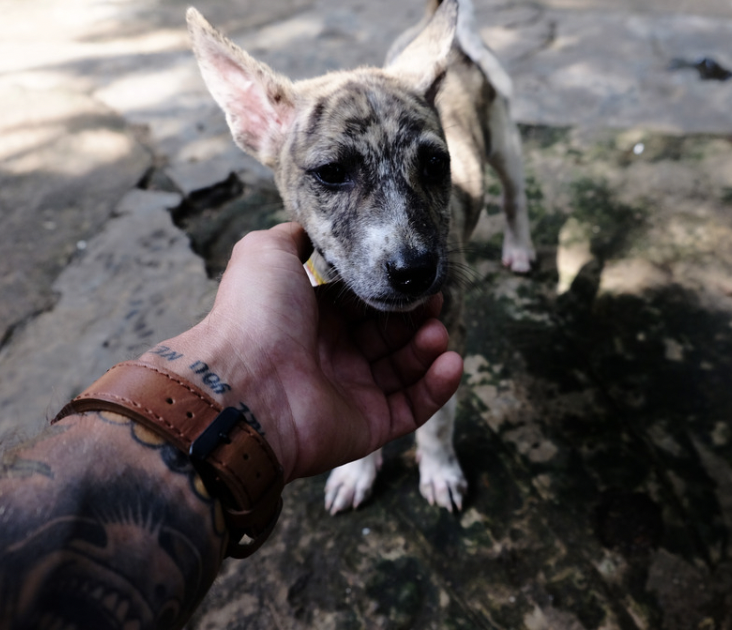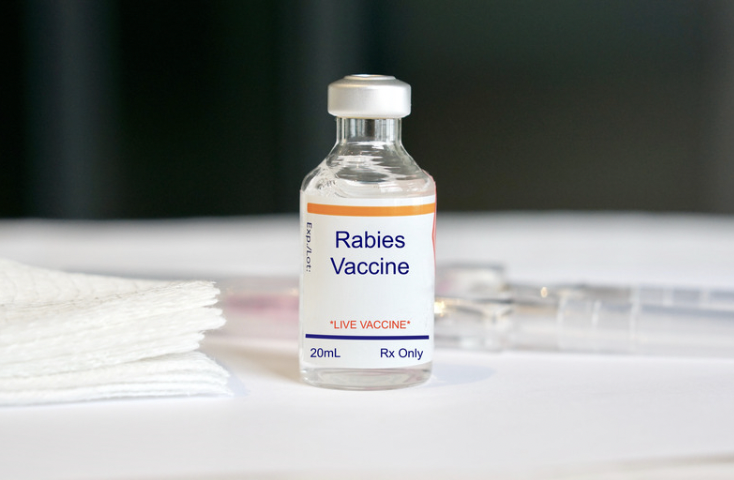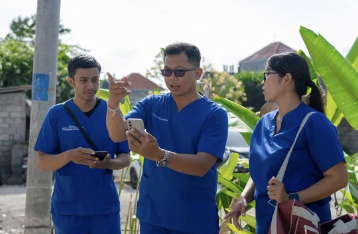
Layanan IV Hangover di Bali: Kapan Cocok dan Kapan Harus Periksa Dulu
Bangun dengan hangover parah di Bali? Matahari Januari 2026 baru saja mengintip di balik rimbunnya pepohonan di villa Anda di
Dreaming of your Bali holiday? Picture yourself lounging on the beach, cuddling with adorable Bali street puppies, or marveling at the playful monkeys in Ubud’s Monkey Forest and Uluwatu Temple. These moments are the stuff of travel dreams, where the island’s animals feel like part of the enchanting experience. We’ve all seen those funny TikTok videos of Bali tourists getting their sunglasses, phones, or food snatched by these smart creatures. But amidst the cuteness and fascination, it’s easy to forget that these animals can pose a serious risk—rabies. One moment you’re enjoying the monkeys’ antics, and in the blink of an eye, a quick swipe from an overly motivated monkey could turn the situation from fun to dangerous, especially if they try to grab something from you and leave a scratch behind.
Rabies is a viral disease that can be transmitted through the bite or scratch of an infected animal, primarily dogs and monkeys in Bali. The good news? Rabies is preventable with timely vaccination, even after a bite or scratch occurs. Whether you’re planning a long trip or a short vacation to Bali, it’s crucial to know the risks and how to protect yourself.
Rabies is a deadly viral disease that attacks the central nervous system. It’s most commonly transmitted through bites or scratches from infected animals. The virus can travel quickly from the wound to the brain, where it causes inflammation, leading to severe symptoms and death if left untreated.
In Bali, rabies remains a significant health concern due to the presence of street dogs and monkeys. While Bali has worked to control rabies outbreaks, the risk is still very real, especially in areas where tourists interact with animals.

One of the biggest risks for rabies exposure in Bali comes from interactions with animals—especially the cute puppies roaming the streets and the monkeys found in popular tourist spots. Monkeys are playful and curious creatures, particularly in the Ubud Monkey Forest and around Uluwatu Temple. Though they seem harmless, they can scratch or bite if provoked. Additionally, street dogs in Bali, particularly the adorable puppies, are often approached and petted by tourists, increasing the risk of rabies exposure.
Hotspots where rabies risks are higher include:
If you’re visiting these locations, it’s essential to remain cautious and avoid unnecessary contact with animals, no matter how friendly they seem.
There are two types of rabies vaccinations—pre-exposure and post-exposure.
At Trishnanda Care Centre, we offer both pre- and post-exposure rabies vaccines, ensuring that you’re protected regardless of your situation. We understand that rabies exposure can be stressful, so we make the vaccination process simple and convenient.
If you are bitten or scratched by a dog, monkey, or any other animal in Bali, you need to act quickly. Immediate wound care is the first step—wash the wound thoroughly with soap and water for at least 15 minutes. This simple action can significantly reduce the risk of rabies transmission.
Next, contact a healthcare provider for a post-exposure rabies vaccination. Trishnanda Care Centre can send a medical professional directly to your villa, hotel, or homestay to administer the rabies vaccine and ensure that you’re fully protected.
For more detailed information on rabies prevention and treatment, check out our comprehensive guide to rabies in Bali.

Rabies vaccines in Bali are generally affordable, but the cost can vary depending on the clinic and the type of vaccine required. At Trishnanda Care Centre, we provide both pre-exposure and post-exposure rabies vaccines. Our team also offers follow-up care to ensure the best protection. Contact us via WhatsApp to inquire about current prices and make an appointment. For more details on our vaccination and lab tests, visit our vaccination and lab test page.

One of the most significant advantages of choosing Trishnanda Care Centre is the convenience. Whether you need a vaccination or follow-up treatment, we come directly to you—no need to navigate unfamiliar streets or find transportation. Our team can provide the rabies vaccine wherever you are, whether it’s in Ubud, Uluwatu, or beyond. For more information on our doctor-on-call services, visit our Doctor Services page.
Yes, rabies vaccination is recommended, especially if you plan to stay for an extended period or engage in outdoor activities that may expose you to animals. You can get vaccinated before your trip (pre-exposure) or after a bite or scratch (post-exposure).
Rabies vaccines in Bali are affordable, with prices varying depending on the clinic. At Trishnanda Care Centre, we offer both pre-exposure and post-exposure rabies vaccines, along with necessary follow-up care. Contact us via WhatsApp for detailed pricing information.
You should seek medical attention immediately after a bite or scratch from an animal. Ideally, the post-exposure rabies vaccine should be administered within 24 hours, but it can still be effective if given later. For urgent help, contact Trishnanda Care Centre for immediate care.
While HPV and Herpes are viral infections that cannot be cured, symptoms can be managed with medication. Vaccines are available to prevent certain strains of HPV, and antiviral drugs can help reduce outbreaks and transmission risk for herpes.
Yes! The rabies vaccine is one of the few vaccines that can still be effective after exposure to the virus. If you’ve been bitten or scratched, get a post-exposure vaccine as soon as possible to prevent the virus from spreading in your body.
For more tips on staying safe and healthy in Bali, visit our blog page for useful travel and wellness information.
Rabies is a serious but preventable disease. If you’re traveling to Bali, especially in areas with street dogs and monkeys, it’s essential to stay vigilant. Whether you need a pre-exposure vaccination for peace of mind or a post-exposure vaccine after a bite, Trishnanda Care Centre is here to provide expert care wherever you are on the island. Don’t take chances with your health—contact us today to book your rabies vaccination and stay protected.

Bangun dengan hangover parah di Bali? Matahari Januari 2026 baru saja mengintip di balik rimbunnya pepohonan di villa Anda di

Kapan waktu terbaik untuk melakukan tes NS1? Tes NS1 (Dengue Early Antigen) paling akurat dilakukan dalam 1 hingga 3 hari
Contact Our Doctor Now